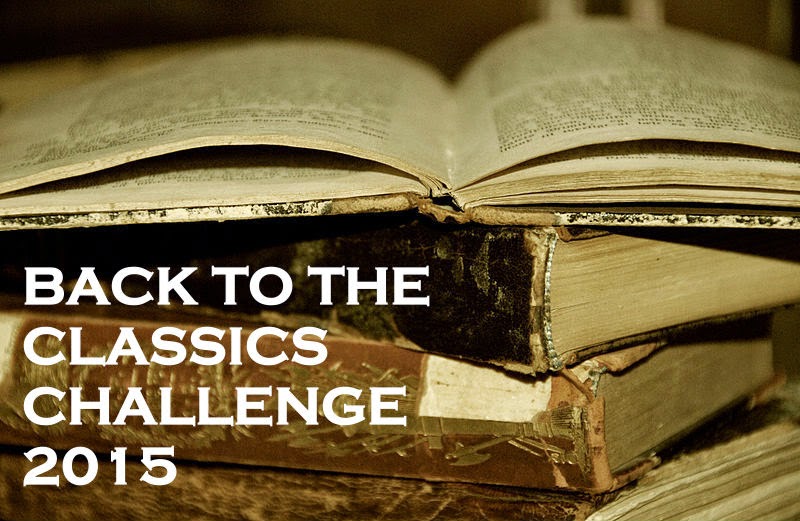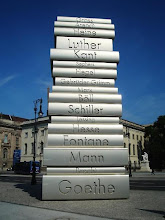
In this "mystery without a murder", we learn to be suspicious of the characters, of events and even of our own conclusions. And in doing so, we soon find the story to be suspiciously pleasing.
The Plot:
At 21 years old, Emma Woodhouse is "handsome, clever, and rich" living with her father in the village of Highbury in Surrey where she reigns as queen bee. The only person who is ever critical of her is a longtime friend and neighbor of the Woodhouse family, Mr. Knightley of Donwell Abbey. As the novel opens, Emma is giving herself credit for bringing about the match of her governess, Miss Taylor and a local gentleman, Mr. Weston. She soon decides that she rather likes matchmaking and, despite Mr. Knightley's disapproval, begins trying to find a match for her new friend, Harriet Smith.
Of course, this does not go as smoothly as Emma had initially envisioned, her first attempt going sadly awry. When the dashing Frank Churchill and the elegant but mysterious Jane Fairfax arrive in Highbury, things get even more interesting. Emma soon learns that she may not be quite as perfect as she had always supposed, and that affairs of the heart (especially her own) are more complicated than she had ever imagined.
My Review (Caution-Spoilers):
Often considered by critics to be Austen's best work, Emma is somewhat different from the rest of her novels. It is not only her longest novel, but also the novel that has the lightest tone overall, because unlike Mansfield Park or Pride and Prejudice, there are no horrific scandals and our heroine is never in danger of losing her chance of happiness with the hero. Emma also serves as a more polished example of Austen's wit and irony than, say, Northanger Abbey. But it is the four main characters that really set this novel apart.
First, we have the handsome and charming Frank Churchill. Of all of Austen's "villains", Frank is probably the least villainous. Though he does frustrate Jane Fairfax, treat his father with little respect and fool the residents of Highbury, his behavior is not quite as scandalous as other villains like Willoughby and Wickham. He does however posses that fatal flaw that all of them do; he lacks strength of character. His only concern is to save himself from the wrath of Mrs. Churchill, thereby inadvertently wounding his fiance, Jane Fairfax. He is also rather offensive to his father by never coming to see him until Jane comes to Highbury. It is however, only Mr. Knightley who sees Frank's carelessness and immaturity, as evidenced in this speech to Emma regarding Frank's breaking his promise to visit his father: "There is one thing, Emma, which a man can always do, if he chuses, and that is, his duty; not by manoeuvring and finessing, but by vigour and resolution. It is Frank Churchill's duty to pay this attention to his father. He knows it to be so, by his promises and messages; but if he wished to do it, it might be done." It is also Mr. Knightley who sees the great irony in Frank's situation after he announces his engagement in what is probably one of my most favorite quotes of the book:
"He is a most fortunate man!" returned Mr. Knightley, with energy. "So early in life--at three-and-twenty--a period when, if a man chuses a wife, he generally chuses ill. At three-and-twenty to have drawn such a prize! What years of felicity that man, in all human calculation, has before him!--Assured of the love of such a woman--the disinterested love, for Jane Fairfax's character vouches for her disinterestedness; every thing in his favour,-- equality of situation--I mean, as far as regards society, and all the habits and manners that are important; equality in every point but one-- and that one, since the purity of her heart is not to be doubted, such as must increase his felicity, for it will be his to bestow the only advantages she wants.--A man would always wish to give a woman a better home than the one he takes her from; and he who can do it, where there is no doubt of her regard, must, I think, be the happiest of mortals.--Frank Churchill is, indeed, the favourite of fortune. Every thing turns out for his good.--He meets with a young woman at a watering-place, gains her affection, cannot even weary her by negligent treatment--and had he and all his family sought round the world for a perfect wife for him, they could not have found her superior.--His aunt is in the way.--His aunt dies.--He has only to speak.--His friends are eager to promote his happiness.-- He had used every body ill--and they are all delighted to forgive him.-- He is a fortunate man indeed!"
Then there is Jane Fairfax, Frank Churchill's fiance and the one person in the world the Emma is really jealous of (and perhaps the most interesting character in all of Austen's works). In some ways, Jane is actually the kind of woman we are used to being an Austen heroine. She is of good birth, but is poor and faces a horrible life as a governess unless she were to marry. But though she is intelligent, elegant and well-mannered, her lack of openness with ANYONE is really the quality that sets her apart from the other Austen women. In fact, Jane Fairfax as a whole almost belongs more to the works of the Brontes than in Regency literature. Again, it is Mr. Knightley who first sees this: "Jane Fairfax is a very charming young woman - but not even Jane Fairfax is perfect. She has a fault. She has not the open temper which a man would wish for in a wife."
And of course there is Mr. Knightley. At 37, he is the oldest of the Austen heroes, but he also comes the closest to being absolutely perfect (tying with Col. Brandon). He is every inch a gentleman; kind, sensible, and possessing sound judgement. His one fault, if you can call it that, is that his jealousy of Frank Churchill somewhat clouds his view of Frank's true character ("He had found her agitated and low.--Frank Churchill was a villain.-- He heard her declare that she had never loved him. Frank Churchill's character was not desperate.--She was his own Emma, by hand and word, when they returned into the house; and if he could have thought of Frank Churchill then, he might have deemed him a very good sort of fellow."). The other wonderful thing about Mr. Knightley is how he shows his strong love for Emma by not flattering her. He cares for her so much that he is unwilling to ruin her by feeding her vanity. One of the most pivotal (dare I say romantic?) parts of the story is his chastising her for insult towards Miss Bates:
"It was badly done, indeed! You, whom she had known from an infant, whom she had seen grow up from a period when her notice was an honour, to have you now, in thoughtless spirits, and the pride of the moment, laugh at her, humble her--and before her niece, too--and before others, many of whom (certainly some,) would be entirely guided by your treatment of her.--This is not pleasant to you, Emma--and it is very far from pleasant to me; but I must, I will,--I will tell you truths while I can."
















2 comments:
The Gwenyth Paltrow version is also delightful! I would recommend it.
Marie
The Kate and Gwenyth versions are both good, but Kate is actually likabele; Gwenyth is annoying. You can't really tell what Knightley saw in her. But they are both good movies.
Kathleen
Post a Comment